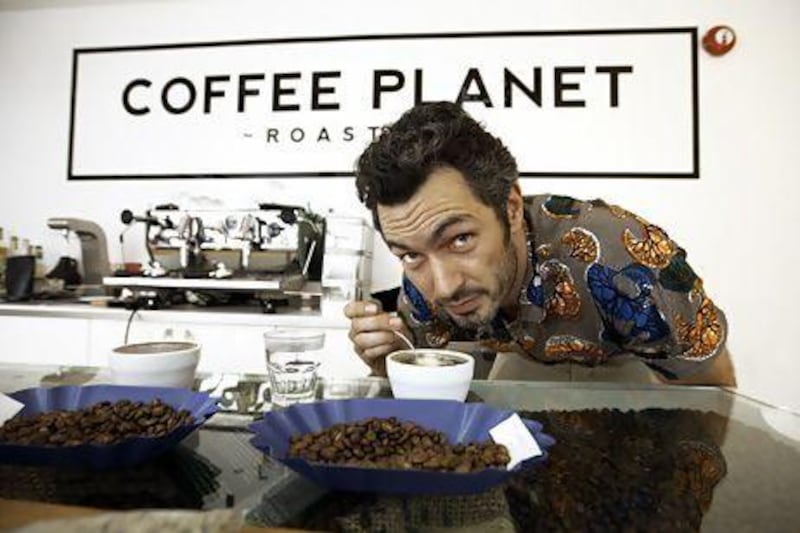Matt Wade is a roastmaster at Dubai-based Coffee Planet. The Briton, 36, talks about the coffee blends he helps to choose and his company's new organic version.
How do you select the beans?
We do the selection based on a percentage score that we set for the coffee. There are 10 elements to coffee, including fragrance, aroma, acidity, balance, cleanliness, uniformity, finish and a personal liking and we award scores to these elements. My favourite is the Kenyan coffee because it is high in malic acid. I like the refreshing juiciness and it is buttery as well. It tastes like blackcurrant.
Where do you travel to select the beans?
Mostly to Africa, where coffee first originated; it is also the origin of Robusta [a type of bean]. I travel to Ethiopia a lot because there are different regions within the country such as Harar and Limu, which offer different flavours. We also get coffee from Rwanda and Uganda. And also to Central America such as Costa Rica, Nicaragua and Panama because it makes juicy espressos and is sweet, too.
How much coffee passes through your roastery weekly?
We import the green beans, roast them and supply to restaurants and cafes, and they grind it. We roast to order. Every week between 6 to 7 tonnes of coffee passes through the roastery. But we can do 10 tonnes a day.
You also supply coffee to petrol stations where it is machine-brewed. How do you achieve consistency?
We have our strict recipe that fits a certain flavour profile and by not changing from that.
Coffee Planet launched organic coffee last month, which is available at 36 Enoc and Eppco stores in Dubai. How is it different from other brands?
We offer not only organic coffee but also UTZ coffee (from sustainable farming), which is a rage in Europe, Korea and Japan. Customers were demanding fair trade coffee but its commodity grade was not very good. We are a speciality grade and we pay way more than fair trade coffee to farmers. Also, the UTZ certified programme guarantees traceability of coffee and deals with a whole range of social aspects. It involves providing proper working conditions, schools and tools to people working for the farmer and people are treated equally.
Where do you get the coffee from for the organic variety?
This is a single origin coffee and we get it from Limu, Ethiopia. It has a chocolatey, herbaceous flavour.
What aspects do you keep in mind when blending coffee from different origins?
It is like making a song where you would not have all high notes. You have middle and base notes as well for an overall pleasant flavour and feeling. For base notes you have Sumatran with a heavy body; for middle notes you have Peruvian coffee with flavours of caramel, almond, walnuts and hazelnuts. And for high notes you have Rwandan coffee, for instance, with lemony tea rose, which gives light top notes.





